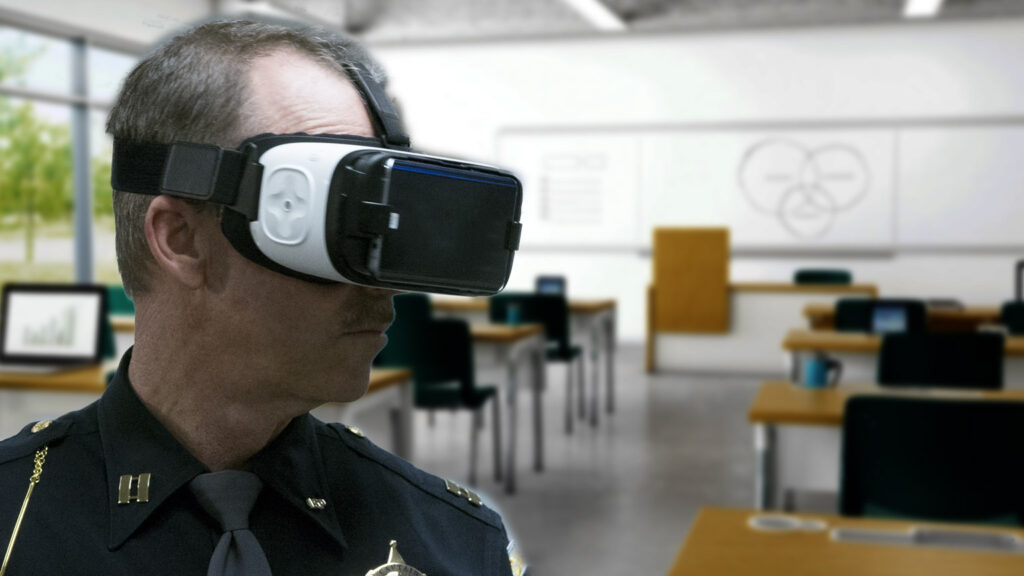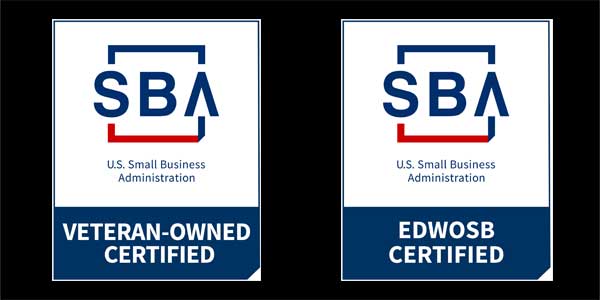Cameron Mengon: Hello and welcome. I’m Cam, and this is David, and we’re from 360 Immersive. Today we’re going to go to talk a little bit about the Idaho state police and virtual reality. David, why don’t you go ahead and tell us a little bit about that?
David Cleverdon: So, one of my favorite projects and clients is the Idaho state police. And we had the pleasure with working – and not only on training initiatives using virtual reality or what people commonly call VR. But also in conjunction with a recruiting application. So, when you think about how organizations now recruit – they go out, they send brochures out, they might do a video, they go to job fairs. But you can’t actually feel as if you’re right there in the organization, starting a career, dedicating your life to – in this case – protecting the people of Idaho. Virtual reality allows us to do that because we can’t actually put somebody right on the training field. We can put somebody in the emergency vehicle course. We can give them a snapshot of what it’s like to build a career with the ISP, and to live, and work in Idaho. And if you think about living and working in Idaho, people come here because of the outdoor recreation.
Cameron Mengon: Right.
David Cleverdon: White water rafting, kayaking –
Cameron Mengon: Skiing.
David Cleverdon: Skiing, snowboarding, all of those things – virtual reality can allow us to experience remotely. I might be somebody in Cincinnati that’s looking for a career in law enforcement. And the Idaho state police may reach out to me in some form. I may just find them online in the app store or in google play because I’m looking for a job in law enforcement, I’m searching around, and suddenly I can experience what it’s like –
Cameron Mengon: So, anybody can download this app?
David Cleverdon: Absolutely.
Cameron Mengon: Alright.
David Cleverdon: Anybody can download this. In fact, you can just download the app just to experience what it’s like to live, work, and play in Idaho along with – of course – you’re going to find out some information about the Idaho state police.
Cameron Mengon: Great.
David Cleverdon: So, when you’re looking at different applications that VR brings to the industry, brings to organizations – it’s that connected experience. When we all watch TV – we watch TV at home, we watch YouTube, we watch maybe television on our phones. It’s a very passive experience, we’re just watching. But when we’re in a VR goggle or even if we’re holding it up like this – on the phone and experiencing it – we’re connected to that experience.
Cameron Mengon: Right.
David Cleverdon: We actually feel as if we’re in there – if we’re in the experience. Training benefits immensely from this type of technology. VR or virtual reality will revolutionize training because not only can we do the traditional thing like we’ll watch a PowerPoint demonstration or maybe that PowerPoint demonstration has an embedded video.
But now we can supplement that training content with virtual reality modules, so that law enforcement, fire, EMS, medical, security, HAZMAT, or workplace safety. They all can use the technology to put somebody – a recruit or somebody that they’re training in the middle of the circumstance, in the middle of the simulation, in the middle of the exercise. And that’s a tremendous difference.
Cameron Mengon: Yeah, definitely. Why don’t you go ahead and tell us some more about 360 Immersive and what we’re all about?
David Cleverdon: Well, we’re a 16-year-old production marketing company. About two and a half years ago – in fact when the first portable goggle came out – so that somebody could actual experience VR with only an inexpensive goggle – certainly less than $100 – in fact, this one is about $35 and your mobile phone. We got excited because suddenly you could have a training tool – or for instance – a trade show, a marketing tool that was inexpensive, cost effective, and unique. So, it allowed trainers to suddenly do something different to increase retention, to engagement, basically a better training experience.
Two and a half years ago we pivoted. We said, “We’re pretty much all in on this.” And we’re dedicating our company resources – we certainly do traditionally marketing and we certainly do traditional production techniques. But we’re dedicated to those organizations that are commonly called first responders – medical and fire, EMS, law enforcement, security folks. And with this new technology and this new training tool. And that’s pretty much what 360 is.
We – not only do 360 live experiences where it’s – let’s say law enforcements – their uniforms, and their processes, and procedures, and tactics. But we also do computer based simulations. So, for instance, in a HAZMAT situation – we can actually virtually tip a tanker truck over. We can create a situation where there’s noxious fluid leaking out, maybe contaminating a water way.
Cameron Mengon: And a lot more control.
David Cleverdon: Absolutely and it’s safe. You –
Cameron Mengon: Exactly.
David Cleverdon: And then, it’s extremely cost effective because to recreate that situation in a live circumstance where you have to take a tanker truck out, you’ve got personnel to deal with, you’ve got all the constraints that make simulations very powerful, but also very expensive. We can give you that same power in creating a great experience, but you don’t have the expense. In fact, you can replicate that over, and over, and over again for very little expense to the organization. And all it takes is a $35 headset and a mobile phone.
Cameron Mengon: Great.
David Cleverdon: For 360 Immersive, we’re absolutely dedicated to promoting better training in law enforcement and I can’t tell you what a joy it’s been to work in this new technology.
Cameron Mengon: Great. Well, thanks, David. I’m Cam, and this is David, and we’re from 360 Immersive. And thanks for joining us, we’ll see you next time.


